
A mum is campaigning for improved disabled changing facilities for older children after being forced to change her eight-year-old daughter on “dirty” public toilet floors.
Wellness and relationship coach Teresha Young, 41, from Watford, says doctors had initially suspected her daughter Jaida had autism following significant developmental delays.
However, genetic screening in November 2021 revealed she has MED13L Syndrome – a rare genetic condition that had only 70 known cases worldwide at that time.
As of 2024, there were believed to be 287 people with MED13L worldwide.
The condition affects Jaida’s mobility, communication and continence, meaning she requires round-the-clock care and one-to-one support when outside the home – and she receives specialist support at a school for children with additional needs during term time.
Lack of public toilets with facilities such as height-adjustable changing tables with a larger weight limit for older disabled children means Teresha, who is separated from Jaida’s father, often has no option but to change her daughter on unhygienic floors.
Teresha is urging businesses and local authorities to adopt facilities called for by the Changing Places campaign so disabled children and adults can be changed safely and with dignity.
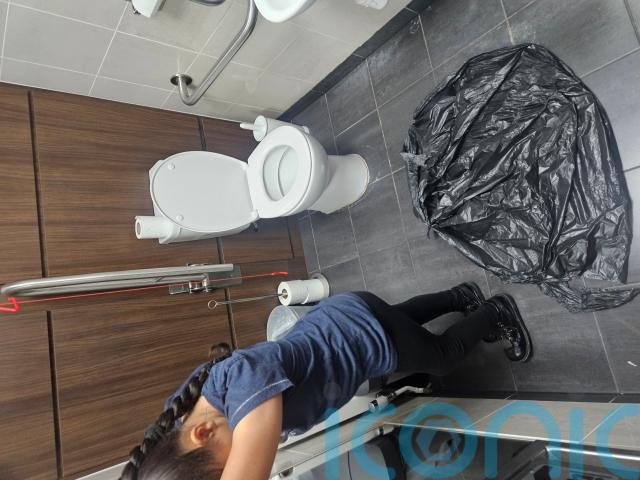
“Why should I, or any other parent carer, be forced to change a child on a dirty, unhygienic toilet floor?” Teresha told PA Real Life.
“It’s undignified, exhausting and could be avoided if there were more suitable facilities.”
Jaida was born in January 2017, and as a baby Teresha noticed she was not meeting developmental milestones such as rolling over or babbling.
Initially reassured to “give it time”, Teresha persisted in seeking answers and at 18 months Jaida was referred to a community paediatrician.
Early assessments suggested global developmental delay, and there was a possibility of autism, but further investigation was advised.
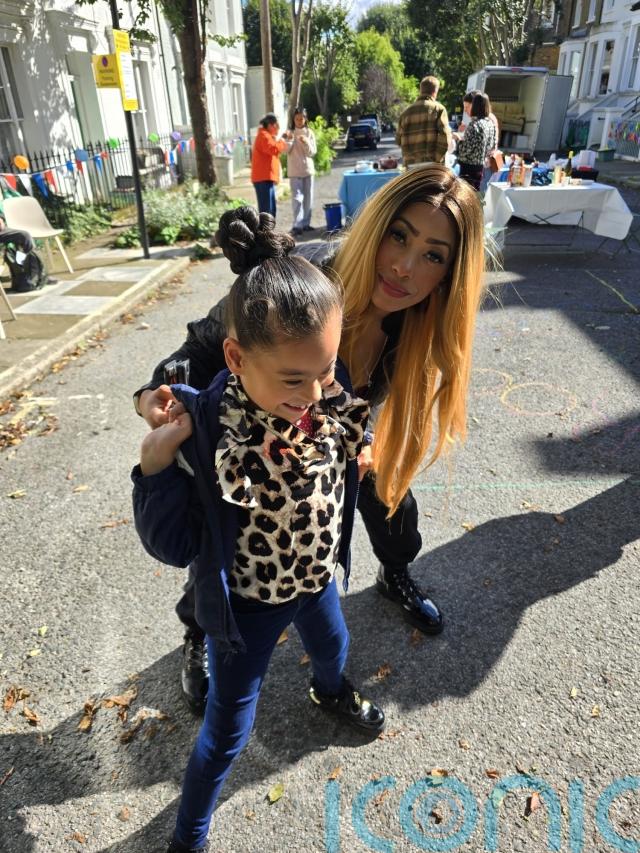
Whole genome sequencing was carried out using samples from Teresha, Jaida and her father.
The results confirmed MED13L Syndrome – in Jaida’s case a de novo mutation, meaning it was not inherited.
The diagnosis brought both clarity and relief.
“It actually felt like I was set free, I knew then I wasn’t making it up or being an anxious mum,” said Teresha.
Teresha documents their life together on Instagram (@jaidas_journey) to help break the stigma around disability and show the unique strengths Jaida has, and to highlight local charities that have supported them.
“Jaida is full of vibrancy. She can be anxious about trying new things because of her sensory needs, but she’s also excitable, loving, caring and so much fun – when people meet her, they say she leaves a lasting impression,” said Teresha.

She often highlights her daughter’s “superpowers” such as hyperlexia – an advanced ability to recognise and understand written words well beyond her age – alongside the daily realities of parenting a disabled child.
Despite hyperlexia, Jaida remains pre-verbal, communicating with an AAC device, an iPad with software that allows her to express her needs.
Jaida also has mobility difficulties, wearing orthotics at night to straighten her feet, and walks with a “slight limp”.
Jaida now attends a specialist school following her mum’s successful appeal through tribunal against their local authority’s five-year waiting list for a place.
While routines and support help Jaida thrive at home and school, trips out present significant challenges – especially around toileting.
Jaida is incontinent and most public facilities are unsuitable for older disabled children like her.
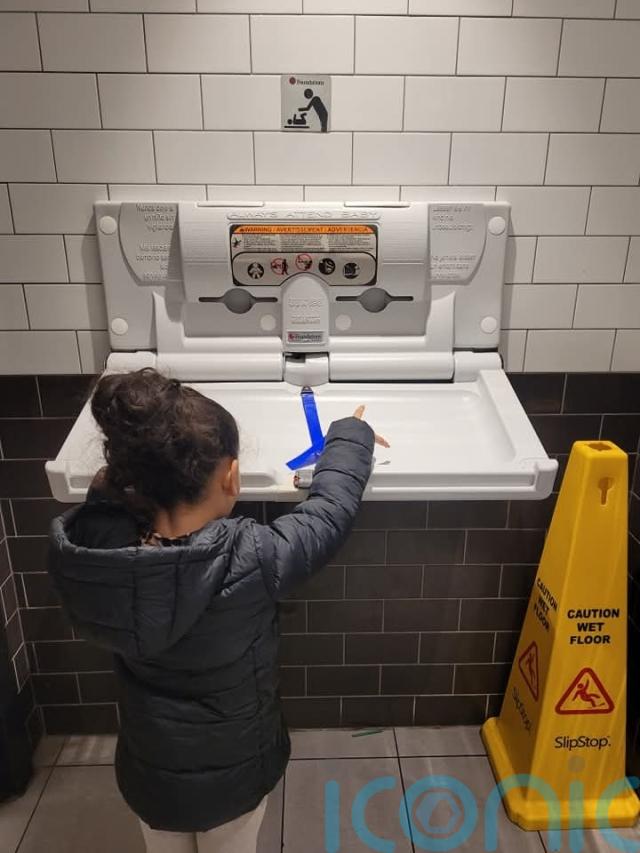
Standard baby changing tables cannot take her weight (30kg) while many disabled toilets lack the equipment or space to change her safely.
This often forces Teresha to improvise.
She carries bin liners in Jaida’s changing bag to create a barrier between her daughter and the floor.
“As you can imagine, it’s dirty – it’s unhygienic to put her on the floor,” she said.
“I try to protect Jaida as much as I can, but the reality is these spaces are not designed for children like her.”
“I’m crouching down, my back and knees are hurting, trying to keep her clean and comfortable. It’s exhausting,” she added.
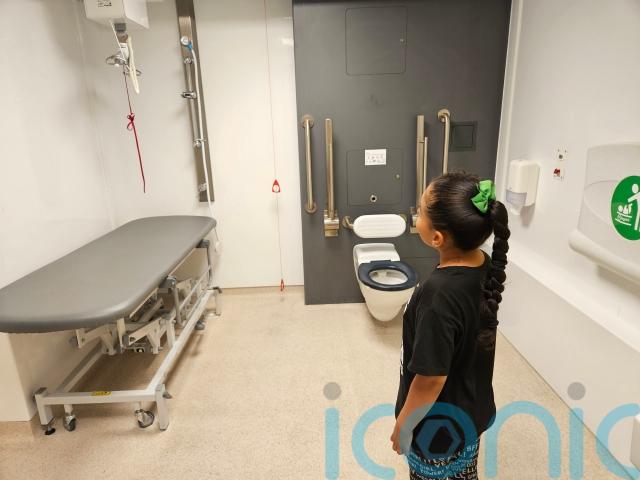
This already difficult experience is often made harder by the reactions of others.
Teresha says they often face judgment when using accessible toilets or parking in disabled bays with their blue badge.
“There’s a lot of ignorance, not all disabilities are visible,” she said.
Teresha supports the Changing Places campaign, which calls for more public toilets with adult-sized, height-adjustable changing benches and hoists.
“If more facilities like this were available, it would make life so much easier and more dignified for families like ours,” she said.
Despite the challenges, Teresha remains determined to give Jaida as many experiences as possible – with recent trips to attractions such as the London Eye and Transport Museum, to Disneyland Paris, and punting in Cambridge.

Jaida also regularly takes part in activities organised by local Hertfordshire charity Playskill.
But Teresha says better changing facilities would reduce the physical and emotional toll of such trips and activities, preventing parents and carers from feeling isolated.
“Rather than saying what can’t be done, ask what can be done. Small changes could transform lives,” she said.
Teresha also feels there is still work to be done regarding the general public’s understanding of disability.
She says that on public transport, Jaida’s vocalisations – her way of expressing excitement – can draw stares and she has witnessed people move away from them.

“Jaida might not notice now, but I do, and it’s heartbreaking,” Teresha said.
“She is simply communicating in her own way, but moments like that make you feel rejected and unwelcome.”
Teresha wants people to remember that “different is okay”.
She also believes change comes from the top, with the language used by medical professionals key to public perception of disability.
She recalls receiving a medical form from a special care dental service that asked if the patient had ever been “violent or aggressive”.
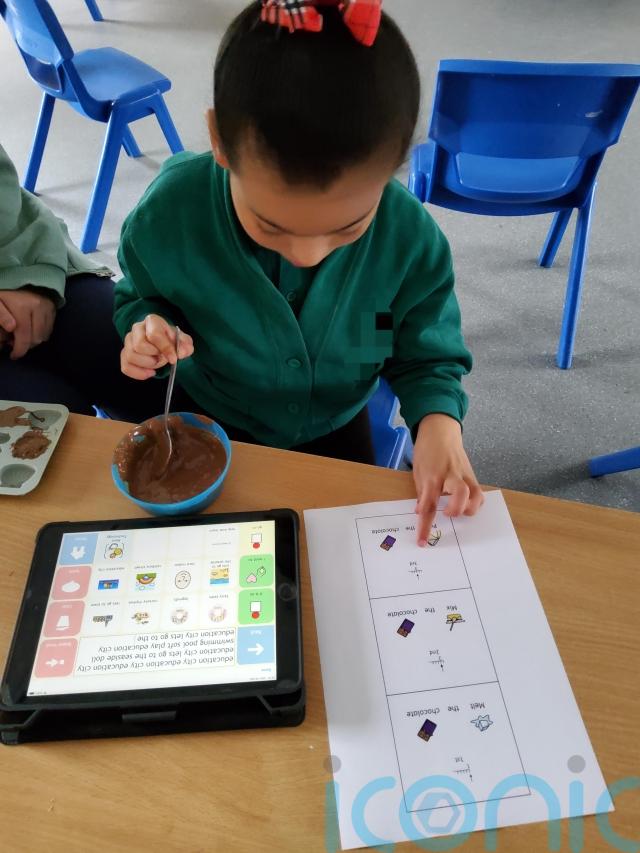
“Jaida is not violent or aggressive,” Teresha said.
“She experiences the world differently, and sometimes she might react in ways linked to sensory overwhelm or frustration.
“Language like that doesn’t capture the reality – it can be harmful and create a misleading narrative about her behaviour.”
Teresha believes professionals should use more neutral terms, such as “reactive behaviours in distressing situations” on such forms going forward to avoid perpetuating bias and misunderstanding.
For Jaida’s future, Teresha’s wish is simple: “I’d like her to feel safe in all places and spaces, that’s my ultimate hope for her.”
Subscribe or register today to discover more from DonegalLive.ie
Buy the e-paper of the Donegal Democrat, Donegal People's Press, Donegal Post and Inish Times here for instant access to Donegal's premier news titles.
Keep up with the latest news from Donegal with our daily newsletter featuring the most important stories of the day delivered to your inbox every evening at 5pm.